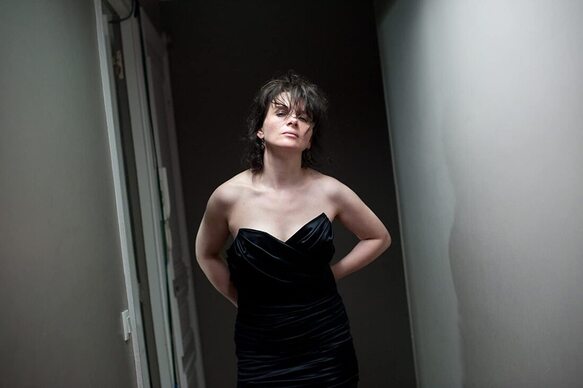ELLES
***
Director: Malgorzata Szumowska (as Malgoska Szumowska)
Screenwriters: Tine Byrckel and Malgorzata Szumowska (as Malgoska Szumowska)
Principal cast:
Juliette Binoche
Joanna Kulig
Anaïs Demoustier
Louis-Do de Lencquesaing
François Civil
Ali Marhyar
Country: France/Poland/Germany
Classification: MA15+
Runtime: 99 mins.
Australian release date: 7 February 2013
Juliette Binoche is without doubt one of France’s finest contemporary actresses (regardless of the recent statement made by Gerard Depardieu that he couldn’t understand why she is held in such great esteem), therefore it is no surprise that this role has already won her accolades for her performance. Playing a journalist, Anne, working for French Elle magazine, she is researching material for an article on student prostitution by interviewing two young women who come from different backgrounds but who are not dissimilar in their attitudes to their profession. What she finds causes Anne to examine her own life and marriage.
Made by a trio of Polish women (director Malgoska Szumowska, producer Marianne Slot and screenwriter Tine Byrckel), the film dispels the traditional opinion that many people hold about female prostitution, that women (in this case, students) are coerced into prostitution by manipulative men and subsequently abused. In Elles their collaboration examines the notion that there are now women who enter into prostitution willingly and who are not only meeting their financial needs but also gaining sexual pleasure from it. On the surface at least…
What they discovered was even more sinister. Many women are in fact “caught in a sort of material fever” according to Byrckel and it is this desire to climb the social ladder armed with all the accoutrements of success that leads many of them into ‘the oldest profession’. This theory is clearly demonstrated by the two central characters, Alicja (Joanna Kulig) and Charlotte (Anaïs Demoustier), who don’t resent the position they are in. In fact, they see it as a means of liberation and empowerment. But, somehow, the reason why they got into the game in the first place ends up taking second place to their feelings of achievement. After all, they have not only managed to keep the wolf from the door; they can now afford expensive clothes and the latest shoes.
Binoche’s character goes along this path of discovery with the filmmakers. She starts to view her bourgeois existence as less than perfect. Her relationship with her husband appears similar to the manipulative state that the traditional prostitute once found herself in - at the mercy of men and seen merely as an object for male gratification. For in Anne’s case, she is expected to behave as her husband wants; to be the perfect house keeper, mother, cook, hostess, and so on. The film plays with this idea but it is the images of the girls subjecting themselves to the sexual whims of men that make the filmmakers pose the question, “Is prostitution a woman’s ultimate liberation as she takes possession of her body, including the right to sell it? Or is it an intolerable submission?”
It makes for an interesting debate although Elles doesn’t really succeed in answering the questions. This is a commendable film but the underlying message seems to be that prostitution is still pretty costly, regardless of your attitude to it.
